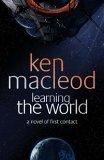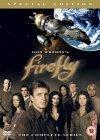Two blog posts about New Orleans caught my eye today. I printed them off and read them on the way home on the Tube. One is about Tribes, the other about Honor. Both are typical for the genre - heartfelt, if a bit rambling. But they couldn't be more different.
Read them both, because I'm about to, in my own heartfelt, rambling way, summarize them with all sorts of bias. Go ahead. I'll wait.
Bill Whittle's Tribes essay starts out about how the increasing divisiveness of the U.S. "breaks my heart. It just breaks my heart into little pieces." Then he goes on to demonstrate how much he loves it. Leave aside for the moment some of the most obviously dubious arguments -- the some-of-my-best-friends-are-black/gay/Democrats gymnastics and his attempt to conflate opposition to the administration's handling of the disaster to being soft on terrorism. That rhetoric is, sadly, so commonplace as to be expected. What I didn't expect was his conclusions, that the problem with New Orleans and the shelter at the Superdome is that it wasn't populated by more people like Bill Whittle. Who knew?
That’s because the people I associate with – my Tribe – consists not of blacks and whites and gays and Hispanics and Asians, but of individuals who do not rape, murder, or steal. My Tribe consists of people who know that sometimes bad things happen, and that these are an opportunity to show ourselves what we are made of. My people go into burning buildings. My Tribe consists of organizers and self-starters, proud and self-reliant people who do not need to be told what to do in a crisis. My Tribe is not fearless; they are something better. They are courageous. My Tribe is honorable, and decent, and kind, and inventive. My Tribe knows how to give orders, and how to follow them. My Tribe knows enough about how the world works to figure out ways to boil water, ration food, repair structures, build and maintain makeshift latrines, and care for the wounded and the dead with respect and compassion.
When I first read that, I admit that I found myself nodding in agreement. Of course, the people preying on the survivors are scum. My family and friends probably wouldn't be mugging and raping people, either. And, God, why didn't anyone think of organizing a latrine or something similar at the Superdome? He carries on, though, taking on tribe after tribe -- Michael Moore fans, Hollywood celebrities. He divides the world into the Pink and Grey tribes. The Pinks' moto is "EVERYBODY IS SPECIAL," while Greys are "tough, hard-nosed, capable, competent." Bill Clinton and Ted Kennedy are, of course, Pink, while George W. Bush, Condoleeza Rice are Grey. And so are John F. Kennedy and Abraham Lincoln. Who's side are you on? (Er, I'm against Abe Lincoln, an obviously facist!) Later, he divides the world into further tribes -- sheep, sheepdogs and wolves. He's a sheepdog.
So it's a war. Don't let any news of screw ups distract you. Real Greys -- real sheepdogs -- don't look to the federal government to save them. New Orleans went badly, he says, because of a lack of leadership, at the local level, a "battle between the capable and the culpable."
Same holds for Governor Blanco. She’s not weak because she’s a woman, or because she’s a Democrat. Truman was a democrat. The Buck stopped there. She’s weak and indecisive because that is the individual she is. I wish history could work with variables: I’d love to see what Margaret Thatcher would have done in such a case. It would not only have been better, it would have been good. That woman was tough. She could be Grey as granite. And, for this, the Pink Tribe despises her.
Take a look at the comments below Whittle's essay. If there are any catcalls in there, they're drowned out by the virtual whistles, cheers and standing ovation. I think it's because his message is comforting. The world is perilous because there aren't enough of us good guys. And we're not responsible.
Now consider Dave Rogers's thoughts on "change." Rogers, a former U.S. Navy officer, takes a very un-former U.S. Navy officer approach: He turns inward.
For a while, after 9/11, some pundits opined that the event would mark some watershed in American history, that it was the end of the Age of Irony. They were wrong. We do have a problem in this country, but it's not going to be solved by a particular economic "sector." There's no faith-based program to address this particular need. There's no catchy slogan, no social software solution, no pill, no gene therapy, no stem cell, no Supreme Court decision that's going to fix what's wrong with this country. But then, there doesn't need to be, because what's wrong can be fixed by you and I. Indeed, it will only be fixed, if you and I fix it.
I'm not an ideologue. I don't have any particular view of the world that I want to promote, other than maybe two ideas: First, know thyself. And second, you must become the change you wish to see in the world.
He writes about what he learned conducting more than 30 burials at sea, about honor, about giving respect to someone you don't know, to someone who is passed caring, and who may never have cared. He writes about the lost respect for public service. Ironically, Whittle and Rogers agree that New Orleans was a failure of leadership.
What happened in the failures of government in the aftermath of Hurricane Katrina was not something intrinsic to the nature of bureaucracies or the public sector. What happened was a failure of leadership, a failure to renew and strengthen the shared faith that makes each of us a part of something larger, and hopefully, better than we are as individuals. What happened was a failure of leadership to keep faith with us.
That failure in leadership was not an accident. It was the result of too many years of too much neglect of the value of public service. For too many years, for too many people, public service has become just a means of advancing oneself in the private sector. People with something to gain, people with a profit motive, selfish, cynical people, have blurred the ideas of authority, responsibility, and accountability. All toward the end of abusing their authority to promote themselves while neglecting or ignoring their responsibilities, oblivious to the shared faith that has become the tattered and fraying social fabric that binds us together.
I look at these two blog posts and despair. One writer has five times the number of subscribers in Bloglines than the other. Guess which?
Technorati Tags : Katrina, Politics, Society








